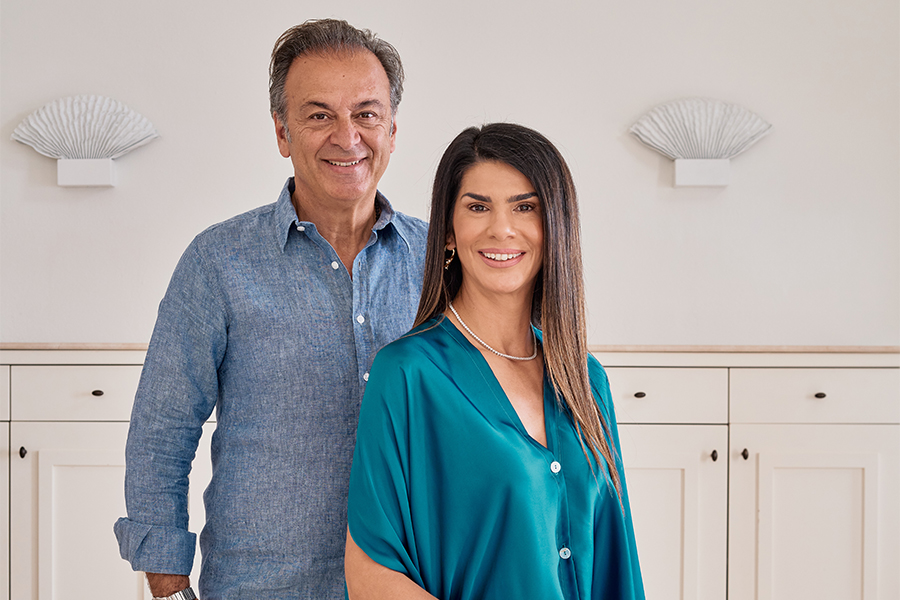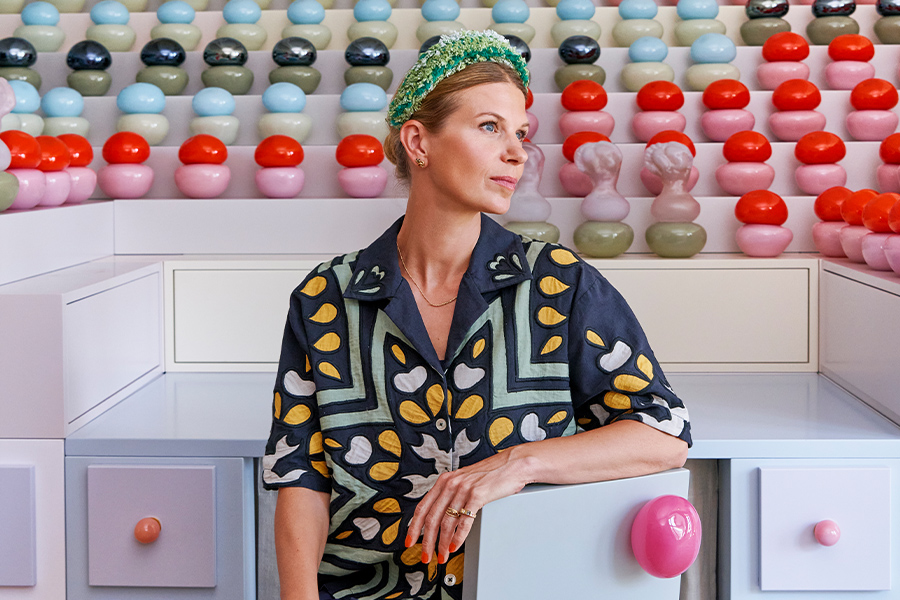When Kalon cofounders Michaele Simmering and Johannes Pauwen debuted a clean-lined crib featuring geometric cutouts in 2007, they set out to do more than just create a new product. “It was a trial to see if we could be the change we were looking for,” explains Pauwen, who studied industrial design at the Rhode Island School of Design, “and through the product, and company, create the world we wanted to live in.”
More than a decade later, this approach to design remains at the forefront of the brand’s high-quality, minimalist furniture and homewares. Since making a splash in commercial and residential marketplaces with their pared-down aesthetic, the husband and wife have expanded beyond children’s furniture, developing Belgian linen–topped sofas, glass-topped side tables, and brass-accented dressers, among other pieces, that eschew decoration in favor of fine wood, such as sugar pine, American ash, and black walnut in its natural form. Next up? Their first outdoor collection, as well as new dining pieces.
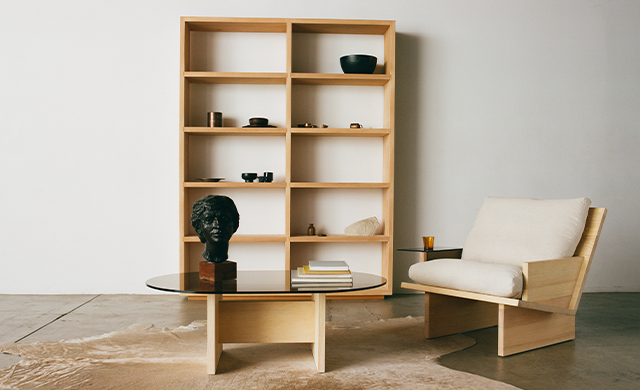
Made from western sugar pine, the Rugosa collection was inspired by Rhode Island’s seaside homes
Manufacturing takes place stateside, mostly done in New England by small woodworking shops. This allows Simmering and Pauwen to be intimately involved in production to ensure sustainability, intrinsic to the brand’s DNA, remains at the forefront of every initiative. “We consider the total impact our work will have on the world and then we make a decision about whether or not it’s worth doing, whether or not the world needs another thing,” explains the German-born Pauwen. “We want our work to be produced in a way that enriches, rather than depletes, communities, trades, and resources.”
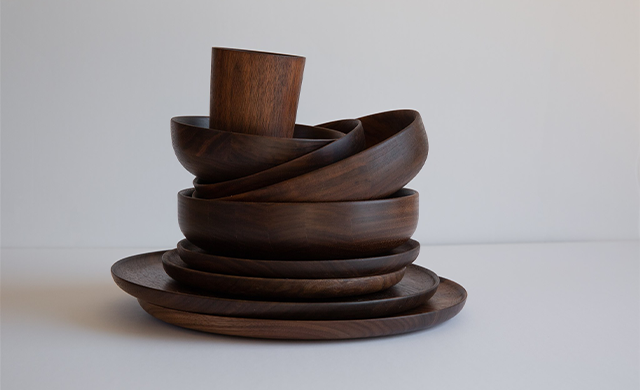
Kalon’s tableware is characterized by its organic features and natural oil and wax finish
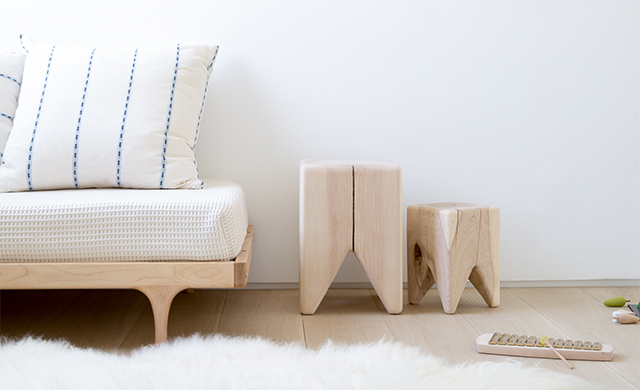
The Stump side tables are constructed from a solid block of green wood and boast a simple, contemporary form
Photos courtesy of Kalon
This article originally appeared in HD’s 2020 Product Marketplace issue.

